Navigating the world of business can be exciting yet daunting, especially when it comes to understanding the legal landscape. Business law isn’t just a set of rules; it’s the backbone of every successful enterprise. It shapes how companies operate, interact, and grow within the marketplace.
I’ve seen firsthand how a solid grasp of business law can empower entrepreneurs to make informed decisions and avoid costly pitfalls. From contracts and employment law to intellectual property and regulatory compliance, each aspect plays a crucial role in ensuring a business thrives. In this article, I’ll explore the essential elements of business law and the legal environment, shedding light on how they impact your business journey.
Key Takeaways
- Importance of Business Law: Business law shapes the operational landscape for companies, aiding entrepreneurs in making informed decisions and avoiding legal pitfalls.
- Key Components: Understanding crucial areas like contract law, employment law, intellectual property, and regulatory compliance is vital for any business to thrive in a competitive environment.
- Legal Environment Impact: The evolving legal environment influences business operations significantly; staying informed about changes in laws helps maintain compliance and competitiveness.
- Proactive Risk Management: Implementing risk management strategies, regular training, and legal counsel engagement can protect businesses from legal issues.
- Ongoing Legal Audits: Conducting regular legal audits and assessments helps identify compliance risks and refine internal policies, promoting a culture of legal awareness and adherence.
- Government’s Role: Regulatory agencies and governmental laws set the framework within which businesses must operate, promoting fair competition and protecting stakeholders.
Business Law and the Legal Environment
Business law encompasses a broad spectrum of legal principles that regulate various aspects of business operations. I recognize that understanding this area is essential for entrepreneurs navigating complex legal frameworks.
Key Elements of Business Law
- Contracts: Contracts form the backbone of business transactions. They establish binding agreements between parties, outlining responsibilities and expectations. In my experience, clear, well-drafted contracts prevent disputes and provide remedies in case of breaches.
- Employment Law: Employment law governs the relationship between employers and employees. This area covers various aspects, including hiring practices, workplace rights, and termination processes. Compliance with employment law safeguards businesses against potential lawsuits and enhances workplace morale.
- Intellectual Property: Intellectual property (IP) laws protect creations of the mind, such as inventions, designs, and brands. Understanding IP rights is crucial for securing competitive advantages and preventing unauthorized use of proprietary assets. I’ve seen businesses thrive by effectively managing their IP portfolios.
- Regulatory Compliance: Regulatory compliance entails adhering to governmental laws and regulations that affect business practices. This includes industry-specific regulations, health and safety standards, and environmental laws. Staying compliant mitigates legal risks and fosters consumer trust.
Influence of the Legal Environment
The legal environment influences business operations significantly. Various factors, such as local, state, and federal laws, shape the way companies conduct themselves in the marketplace. I find that staying informed on changes in legislation helps businesses react proactively and maintain competitiveness.
I see business law not just as a reactive measure but as a proactive strategy for growth and stability. Understanding its intricacies equips entrepreneurs to make better decisions and minimize legal pitfalls.
Key Components of Business Law
Understanding the key components of business law is essential for navigating the legal landscape of any enterprise. These components set the foundation for lawful and ethical business practices.
Contract Law
Contract law governs the creation and enforcement of agreements between parties. It ensures that contracts are clear and legally binding, providing protections against breaches that could arise. I focus on essential elements like offer, acceptance, and consideration when drafting contracts. Ensuring precise language prevents misunderstandings and establishes enforceable rights. For example, a well-structured contract can delineate payment terms, deadlines, and responsibilities, minimizing potential disputes. Businesses often rely on standard contracts for common transactions, such as sales and service agreements, making compliance with contract law crucial.
Employment Law
Employment law regulates the relationship between employers and employees, encompassing various aspects like hiring practices, workplace conditions, and termination procedures. I pay particular attention to compliance with federal and state regulations to avoid potential lawsuits. Areas such as wage and hour laws, worker safety standards, and anti-discrimination laws significantly impact workplace morale and legal responsibility. For instance, implementing clear policies on harassment and diversity fosters a positive work environment and demonstrates compliance with employment law. Remaining informed about changes in employment legislation is vital for sustaining a healthy organizational culture.
Intellectual Property Law
Intellectual property law protects creations of the mind, including inventions, artistic works, and brand identities. I emphasize the importance of securing patents, trademarks, and copyrights to safeguard innovative products and services. For instance, registering a trademark not only prevents others from using a similar brand name but also enhances brand value. By effectively utilizing intellectual property law, businesses can maintain a competitive edge in the marketplace. Failure to protect intellectual property can lead to significant financial losses and diminish a company’s reputation. Thus, understanding these laws equips me to better navigate the challenges of protecting valuable business assets.
The Role of Government in the Legal Environment
Government plays a crucial role in shaping the legal environment in which businesses operate. Through a framework of laws and regulations, it establishes the rules that govern commerce and protect stakeholders.
Regulatory Agencies
Regulatory agencies enforce laws and regulations that impact various industries. Examples include the Securities and Exchange Commission (SEC) for securities regulations, the Federal Trade Commission (FTC) for consumer protection, and the Occupational Safety and Health Administration (OSHA) for workplace safety. These agencies ensure compliance, investigate violations, and impose penalties for non-adherence. Their actions foster fair competition and protect consumers from deceptive practices, creating an equitable business landscape.
Compliance and Licensing
Compliance involves adhering to laws set by the government, which can include industry-specific regulations, environmental standards, and employment laws. Businesses must obtain proper licenses to operate legally, such as business licenses, health permits, and professional certifications. Regulatory compliance not only prevents legal issues but enhances business reputation and consumer trust. Managing compliance effectively demonstrates a commitment to ethical business practices and helps mitigate risks associated with legal violations.
Challenges in Business Law
Understanding the challenges in business law requires recognizing the complexities of the legal environment. Navigating these challenges can significantly impact an enterprise’s success.
Navigating Legal Disputes
Legal disputes often arise from contract breaches or disagreements between stakeholders. Successful resolution of these disputes usually involves negotiation, mediation, or litigation. I find that having a clear dispute resolution clause in contracts helps minimize potential conflicts. Engaging legal counsel early during disputes ensures that businesses understand their rights and obligations. Additionally, proactive communication can preempt misunderstandings, reducing the likelihood of costly litigation.
Evolving Legal Standards
Business law frequently evolves as regulations change to address new market conditions and societal needs. Keeping up with these changes requires ongoing education and adaptation. For instance, technology advancements have led to new regulations regarding data privacy and cybersecurity. Businesses must regularly review their policies and practices to ensure compliance with these evolving standards. Failure to adapt can result in significant legal penalties and reputational damage. Seeking legal expertise helps organizations stay informed and compliant in a dynamic legal environment.
Best Practices for Businesses
Understanding best practices in business law enhances operational effectiveness and minimizes legal pitfalls. Implementing these practices fosters a culture of compliance and risk management.
Risk Management Strategies
Establishing risk management strategies protects businesses from potential legal issues. Identify areas of exposure, including contract breaches and regulatory non-compliance.
- Conduct Regular Training: Implement ongoing training programs for employees covering areas like contractual obligations, employee rights, and compliance standards.
- Develop Clear Policies: Formulate clear internal policies that address workplace conduct, privacy issues, and dispute resolution processes. Ensure employees are aware of these policies.
- Engage Legal Counsel: Consult with legal professionals to obtain guidance on contracts and compliance requirements. Early engagement prevents misunderstandings and disputes.
- Monitor Regulatory Changes: Stay informed on legislative changes that could impact operations. This proactive approach helps adapt strategies accordingly, avoiding penalties.
Legal Audits and Assessments
Conducting legal audits and assessments identifies compliance breaches and areas for improvement. Regular evaluations keep businesses aligned with legal standards.
- Perform Comprehensive Audits: Schedule regular audits to review contracts, employee handbooks, and compliance protocols. Assess current legal practices against industry standards.
- Evaluate Risk Exposure: Analyze potential legal risks in various departments, including HR, sales, and marketing. Focus on areas where compliance may falter.
- Document Findings: Compile findings from audits and assessments to form a clear overview of legal health. Use this documentation to inform decision-making.
- Refine Policies: Adjust current policies and procedures based on audit results. Implement changes to enhance compliance and reduce risks.
Legal Environment
Navigating the complexities of business law and the legal environment is essential for any entrepreneur. By understanding the legal environment I can make informed decisions that protect my business and promote growth.
Embracing the principles of contracts, employment law, intellectual property, and regulatory compliance not only minimizes risks but also enhances operational effectiveness.
I’ve learned that proactive engagement with legal matters sets the foundation for a stable and successful enterprise. Investing time in legal education and best practices is an investment in the future of my business.



